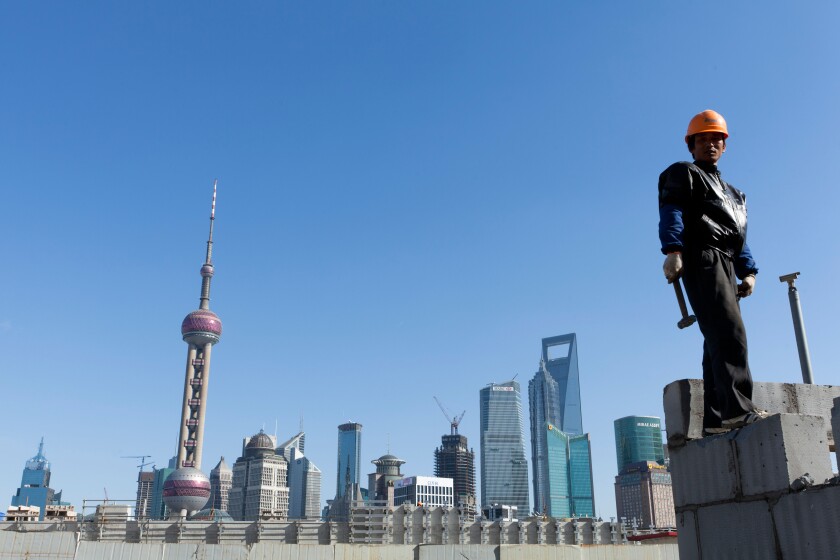Market participants looking for some respite from the woes of China’s property sector are likely to be left disappointed — again.
Last Saturday, Zhenro Properties Group joined a growing list of Chinese real estate firms to have defaulted offshore, after not being able to pay interest on two dollar bonds within the grace period. The company is facing three more defaults this week, and another next month.
The news came after a relatively good run last week for the sector, when property stock prices surged earlier in the week and some bonds traded up, thanks to recent easing measures and expectations that upcoming maturities from some developers will get extended. Recently, more issuers have also repurchased or redeemed early their outstanding offshore bonds.
But the equities rally proved to be short-lived, and a sector-wide recovery failed to gain momentum.
While Zhenro was not able to avoid a default, it was not for lack of trying. The company had gone to great lengths to convince investors to participate in an exchange offer and consent solicitation, effectively extending the maturity and call dates for nearly $1.2bn of dollar and offshore renminbi bonds to March 2023. Domestically, the company extended a Rmb180m ABS.
Zhenro was also among the Hong Kong-listed Chinese developers that managed to publish its full year 2021 financial results on time.
This was when more than two dozen peers — including China Evergrande Group, Shimao Group Holdings and Sunac China Holdings — missing the bourse’s March 31 deadline and had their stocks suspended from trading. Unsurprisingly though, Zhenro’s results were not pretty. While it managed to achieve 97% of its annual sales target with a moderate 2.4% rise in revenue, its net profit slumped nearly 70% year-on-year.
The company said the “unforeseen scale and duration” of a lockdown in Shanghai, due to a resurgence in Covid-19 infections, added to the pressure from the already unfavourable environment in the real estate and financial markets, leading to its eventual defaults.
The challenges faced by Zhenro are not unique. Also, as it is only among the top 40 Chinese developers by equity sales, its defaults may not have caused as much noise as that of its bigger peer Evergrande. But its woes once again highlight the severity of the situation and uncertainties faced by the entire sector, despite positive signals on the policy front.
Last year, bankers and investors had pinned their hopes on Chinese regulators to come to the sector’s rescue.
Fast forward a few months, Beijing has repeatedly voiced support for the market. It has lowered the benchmark lending rates, delayed the implementation of property tax, relaxed banks’ real estate loan requirements, encouraged state capital to acquire more property assets, and facilitated more bond sales from both financial institutions and developers. At the local government level, at least five dozen Mainland cities eased restrictions on property sales.
These steps, however, have not proven as effective as the market had hoped. Instead, the industry is still waiting for a turning point. The top 100 Chinese developers saw their January to March sales plummet nearly 50%, year-on-year, according to real estate information provider China Real Estate Information Corp.
The reality is that despite stabilising property prices and declining mortgage rates, the sector and the sentiment around it are still vulnerable to negative headlines, to headwinds such as Covid-19, signs of a slowing economy, and geopolitical tensions.
A sustainable rebound could still be triggered by more material relaxations from Beijing. Market-watchers hope that officially allowing developers to tap into pre-sale proceeds — the majority of which are required to be held in escrow accounts, making them inaccessible to cash-strapped firms — could be a gamechanger.
Until developers can get their hands on more cash, be it from pre-sale funds held in escrow or from recovering sales, their dark days are not over. Market participants should brace themselves for more tough times ahead.

